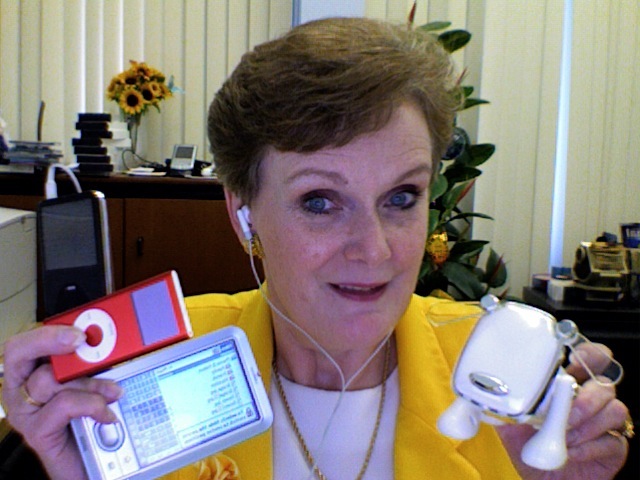As the 1960s drew to a close, the world was abuzz with noteworthy events in pop culture, technology and space travel.
In 1969, Sesame Street debuted on PBS, and the Beatles released Abbey Road, their final album to be recorded together as a group. ARPANET — the predecessor of the internet — was created, and the microprocessor was invented. The first ATM cash machine was installed in the United States.
On June 24, 1969, an estimated 1 billion people tuned in by radio and television to watch NASA’s Apollo 11 spacecraft land on the moon, marking the first time that humans set foot on the lunar surface.

The following day, Mary Waker launched her career at Wayne State University following her recent graduation from Detroit’s Mackenzie High School. Graduating early, the 17-year-old was strongly encouraged to apply to Wayne State for a job and ended up in the biology department.
She settled in at Old Main and began her 52-year academic and professional journey at the university in the biology department. After just three days on the job as a secretary, Waker moved to a different physical location on the third floor of the biology building. A year-and-a-half into the job, she decided that maybe it was time to explore other opportunities on campus. “One day when entering my office, I saw a live snake curled up next to my desk. That’s when I decided to check out other options.”
The Foreign Language Lab in Manoogian Hall was her next stop in 1971, where she caught the technology bug as well and pursued opportunities for career and academic advancement. “The doors opened up a world of technology, an area that I knew was right for me as I learned programming and other key elements that prepared me for my career.”
Waker’s journey over the next 30 years at the Foreign Language Lab maintained a steep upward trajectory as she served in myriad positions, including secretary, operations supervisor, academic services officer, interim director, and as a member of the adjunct faculty in the Department of Greek and Latin, Pre-Collegiate Modern Greek developing computer programs to teach Greek.
“It was during this very busy time that I also was encouraged to pursue my degrees. My mentor provided invaluable support and encouragement.”
Waker, the daughter of parents who emigrated from Canada, is the only member of her large family of six siblings to go on to higher education and earn degrees. She fondly remembers her tight-knit family as she grew up on the northwest side of Detroit. “My parents instilled in us the importance of family and working hard to reach our goals.”
Reminiscing about the origins of the Waker family, she recalled the pivotal moment when her mother and father first met – a rather unconventional event, according to Waker. “My mother was working at an ice cream parlor when my father arrived with his date. Soon after this chance encounter, my father asked my mother out on a date.”
In 1990, she received a bachelor’s in psychology, and five years later a master’s in counseling. In 2001, Waker completed an Ed.D. in instructional technology. “As an employee of the university, I thought why not use the educational benefits afforded to us. The cost is taken care of, so take advantage of this great benefit.”
Armed with academic credentials and unbridled determination, in 2001, Waker seized an opportunity at the College of Education as the director of the Education Technology Center. Not long after settling into yet another career position, she embarked on a road that pointed to a series of 14 grants totaling more than $1.7 million.
“I was first approached about a grant opportunity shortly after joining the College of Education. This was a new challenge for me. I had no experience in applying for grants, so I did my research and put it together.”
The $1.1 million, four-year grant – “Preparing Tomorrow’s Teachers to use Technology (PT3) Metropolitan Detroit Learning Community” — ignited a passion in Waker that remains strong. “I realized then that I wanted to help prepare teachers to use technology and understand the great benefits that it can bring to the classroom.”
Through the grant, Waker was able to explore the early use of wireless technology in the classroom. In 2001, the College of Education building became the classroom facility on campus with wireless technologies.
As the importance of technology in the classroom — for both teachers and students — has moved to the forefront during the COVID-19 pandemic, Waker, who also is an academic services officer in the College of Education, sees new opportunities for greater advancements.
“Harvesting technology to support learning has been an evolutionary process throughout my career. Now, as never before, we’ve all been thrust into using technology for remote learning. Educators are thinking hard about learning, what it requires, and how to get it done most effectively. These are definitely exciting times in educational technology.”
Waker’s dedication to Wayne State was felt very early on in her career. “When I attended a recognition ceremony back in my fourth or fifth year at the university, the director of the personnel department in liberal arts received an award for being at Wayne State for 50 years. As she walked across the stage, I decided right then that I wanted to earn an award for being at WSU for 50 years, too! I never changed my mind.”
Looking over her five-plus decades at Wayne State, the 69-year-old has no intention of slowing down. “I’ve always maintained an attitude of figuring things out. That’s the key to longevity and enjoying our chosen profession. As long as we have a desire to learn — to figure things out — and explore new pathways, we’ll keep evolving and thriving.”
